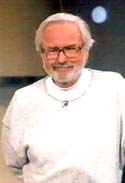
1994
DANNY! PF Reunion
The
Pre-Partridge
Years
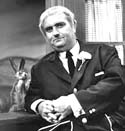
Capt. Kangaroo
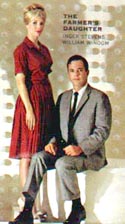
The Farmer's
Daughter
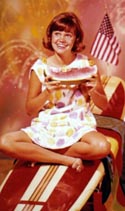
Gidget
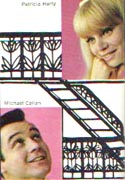
Occasional
Wife
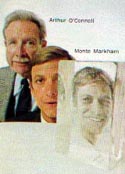
Second
Hundred Years
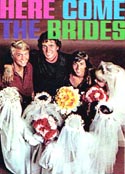
Here Come
The Brides
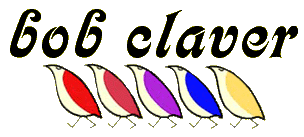
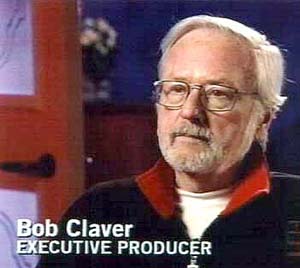 Born
in Chicago, Illinois, Bob Claver got his professional start as a producer
and writer in children’s television, most notably “Captain Kangaroo”.
From there, his career took him to Hollywood, where he immediately started
working with names such as Aaron Spelling, Inger Stevens, Jackie Cooper,
and Ida Lupino. Bob has produced and directed hundreds of hours of classic
television, including Here Come The Brides, Gidget, Mork & Mindy,
Welcome Back Kotter, Getting Together, The Bob Newhart Show, Rhoda, Gloria,
All's Fair, Doc, Out of This World, The Farmer’s Daughter, The Facts of Life, The Girl
With Something Extra, The Dukes of Hazzard, Charles In Charge, Powers of
Matthew Star, Automan, Small Wonder, Young Maverick, and countless
others. Mr. Claver once again lives in Chicago, where he spoke to Scott
Awley and cmongethappy.com in April 2000.
Born
in Chicago, Illinois, Bob Claver got his professional start as a producer
and writer in children’s television, most notably “Captain Kangaroo”.
From there, his career took him to Hollywood, where he immediately started
working with names such as Aaron Spelling, Inger Stevens, Jackie Cooper,
and Ida Lupino. Bob has produced and directed hundreds of hours of classic
television, including Here Come The Brides, Gidget, Mork & Mindy,
Welcome Back Kotter, Getting Together, The Bob Newhart Show, Rhoda, Gloria,
All's Fair, Doc, Out of This World, The Farmer’s Daughter, The Facts of Life, The Girl
With Something Extra, The Dukes of Hazzard, Charles In Charge, Powers of
Matthew Star, Automan, Small Wonder, Young Maverick, and countless
others. Mr. Claver once again lives in Chicago, where he spoke to Scott
Awley and cmongethappy.com in April 2000.
Get Happy: How did you get your start in television?
Bob Claver: I worked for a small production company in Chicago for a month. They needed to open up a New York office. I was the only bachelor and had just got out of the Army and college. So I went off to New York, and got a room in this awful hotel. We were working on two kid’s show, and had an hour to fill from 12 – 1 every day. One show was a disaster, but the other was a show called “Time For Fun” with Corny the Clown – who was actually Bob Keeshan.
GH: Captain Kangaroo?
BC: Yes. That ultimately led to my first really big network job: I was the associate producer, and wrote the first 5 years of The Captain Kangaroo Show”. It was a big hit and totally confused the head of CBS. He couldn’t understand one reason why anybody would watch that show. His final word was, “Start it, and if you have any trouble, call me.” I quit after 5 years. I was the Executive Producer by then. I was too young to get locked into that kind of thing. It ran for 26 or so years.
GH: Where did you go from there?
BC: I did a summer replacement series in 1959 with Jimmie Rodgers and Connie Francis. Jimmy had a big career going with his hit song, “Honeycomb”. The show was a replacement for Eddie Fisher and George Gobel. When that ended, there was no work in New York so I went out to California. I had never really been in a film studio. So, from making many thousands of dollars a week, I got a job at $250.00 a week for a production company called Four Star Films – a company founded by Dick Powell, Ida Lupino, Charles Boyer and David Niven. They appeared in an anthology series that ran on CBS. This was about 1954. People like Aaron Spelling, William Link, Richard Levinson worked there with me.
GH: How did you get involved with Screen Gems?
BC: I met Jackie Cooper at Four Star. He took over as head of production at Columbia/Screen Gems and hired me. He gave me a show that was already on the air called “The Farmers’ Daughter”, based on the Loretta Young movie. The series was with Inger Stevens and William Windom. Inger is probably one of the biggest stars in television history. She was also a motion picture star, and committed suicide many years ago. Inger and I got along very well. It was a joy. I found that if you work with women stars, you have no trouble, and if you work with men stars, you have nothing but trouble.
GH: “Here Come the Brides” must have been a nightmare! There were 4 male stars on that show!
BC: It depends on who the men are. Bobby Sherman may be the nicest person that ever lived. Peter Brown wasn’t a problem. David Soul could be moody, I suppose. I just think that men have a bigger problem with their egos than women. But I think that’s true in many walks of life.
GH: In our interview with Bernard Slade, he mentioned that Screen Gems had several different camps. What was that about?
BC: There may have been different groups of people working on different projects all at the same time. I really had a strong temper, and if anybody got in my way, I would get into screaming fights with them. I don’t think anybody wanted me in their camp. I had my own group, filled with very good people like Bill Blinn, who wrote the Brian Piccolo film, and Paul Junger Witt, who was my assistant for a long period of time, and has gone on to do great things such as “The Golden Girls” and “Soap”.
GH: What were you like to work for?
BC: I was very trusting. If you have good people, it’s a good thing, because you don’t have to be watching everything. It makes your job easier.
GH: What were you involved with at Screen Gems?
BC: I did the pilot for “Gidget”, and something else called “Occasional Wife”. Then I did “Second Hundred Years” which was a pretty awful show, and then “Here Comes The Brides” which was very popular. The same year as Partridge, I was also executive producer on “The Interns” with Broderick Crawford, Mike Farrell [and Elaine Giftos (“Bonnie Kleinschmidt) – ed.] After Partridge, I decided I didn’t want to be a Producer and get stuck in meetings all day. I wanted to go back into directing, which is what I did. Of course, if all shows were like The Partridge Family, then it would have been fine, because we never had any major problems.
GH: What kind of problems would you have had? From the network?
BC: The network always told you what they thought, but most of the time they were wrong. They had an unerring instinct for everything wrong. I remember when we did the pilot for The Partridge Family, Danny had a big part, and was a big reason why the pilot sold so quickly. So the network said we had to do many more shows with Danny, which would have been a mistake.
GH: Why is that?
BC: Because it would have turned him from an amusing kid into a pain in the ass. We eventually did too many of them, but I was able to talk the network into holding some of them back, so we would spread them out over the course of the year. Once the show was a success, though, they [the network] were gone.
GH: What were the daily duties of an Executive Producer?
BC: There’s no answer to that question.
Because it depends on what they are there to do. If you are an Executive
Producer like David Kelly or Norman Lear or Grant Tinker, where you have
many different shows, your hands on duties are minimal, because you are
split between so many different shows. But I had two shows going, so I
was very active. I was a sort of Line Producer, I was involved in editing,
all the script work, casting, etc. I was on the set daily, and involved
in everything.